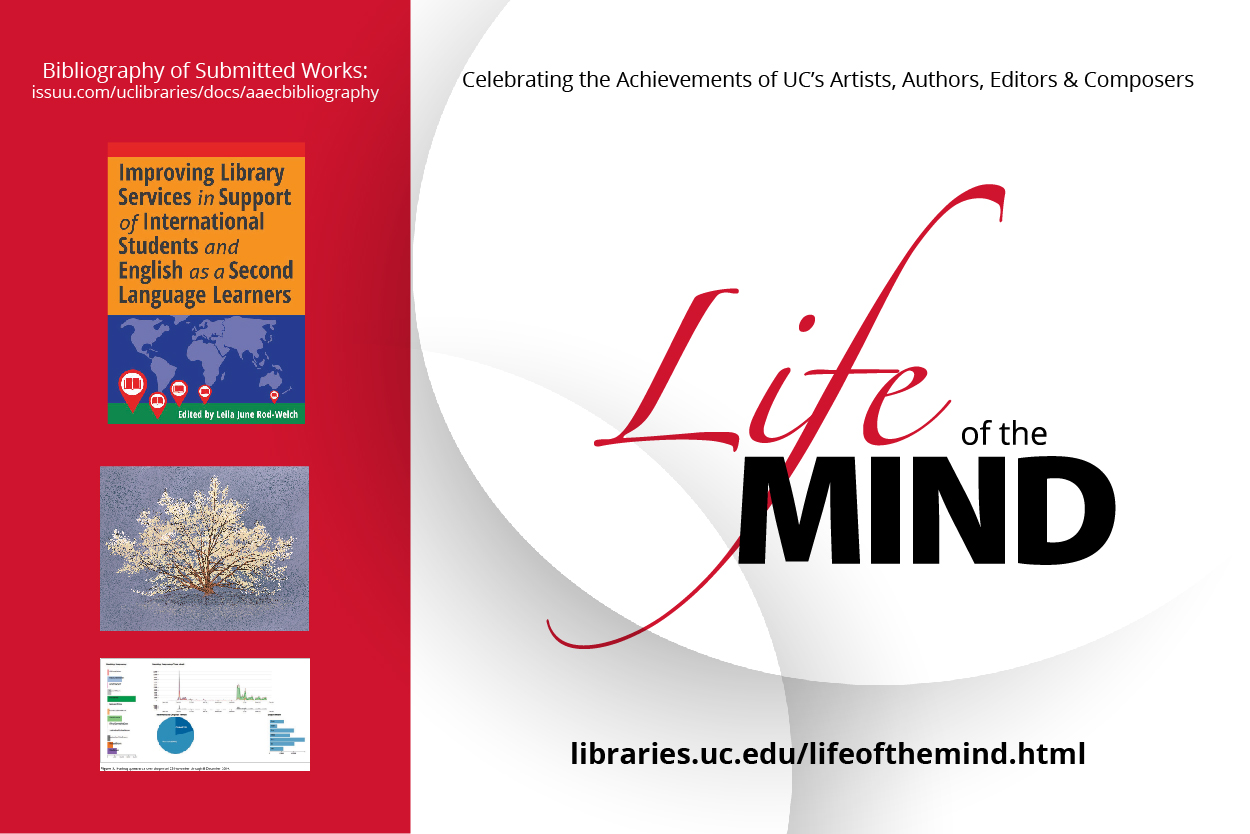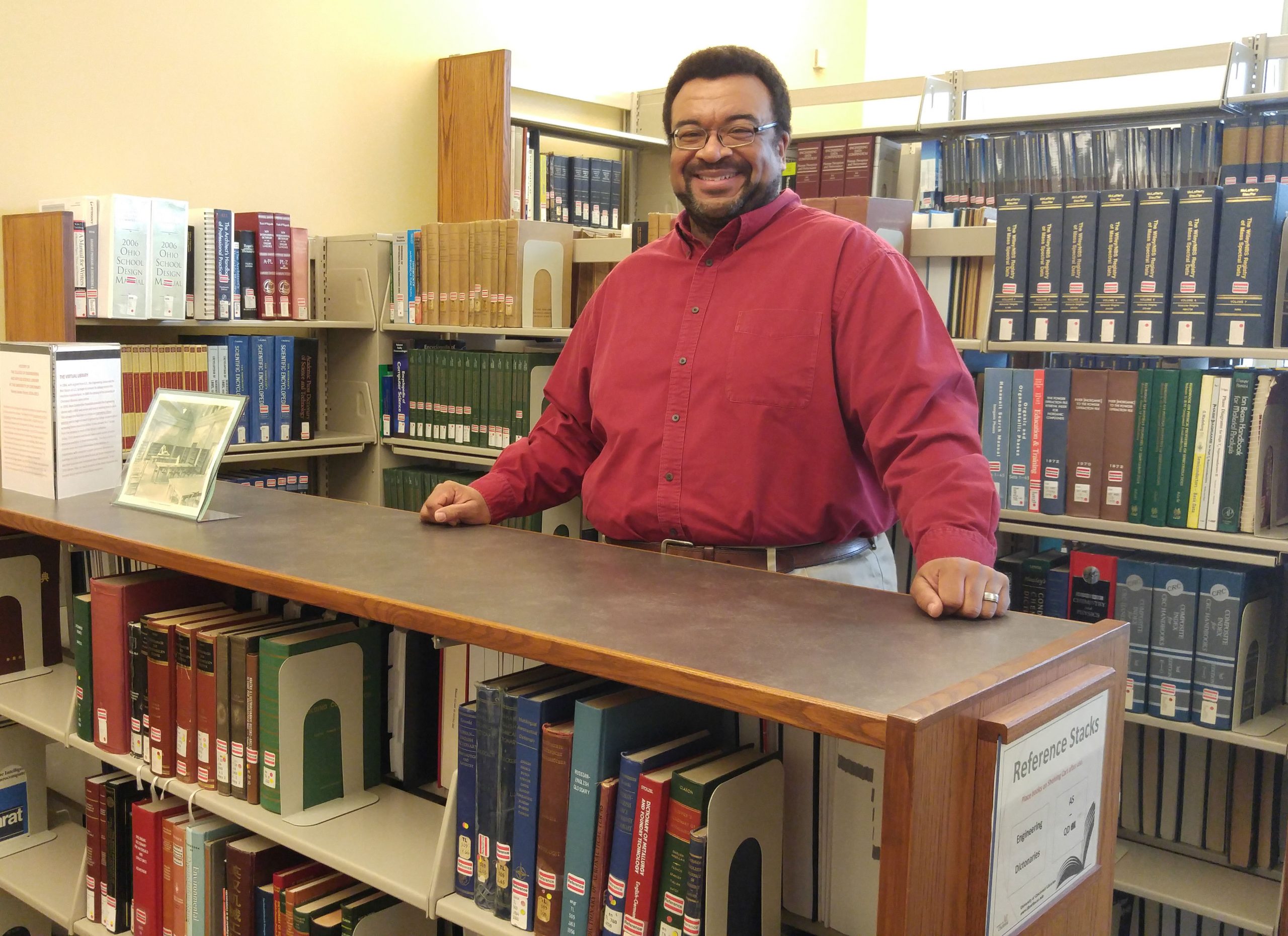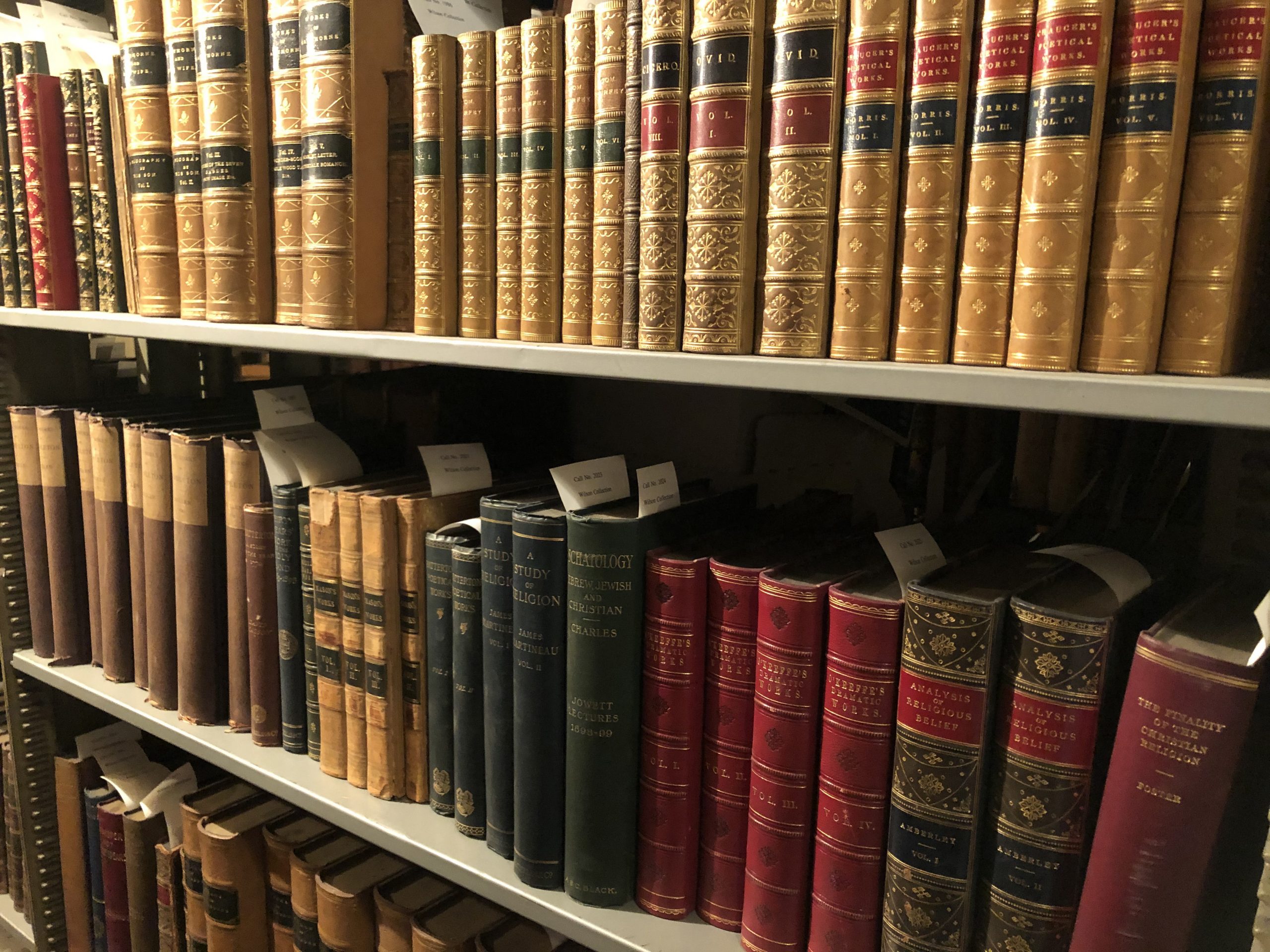
Obed Wilson’s Library
By Kevin Grace, university archivist and head of the Archives and Rare Books Library
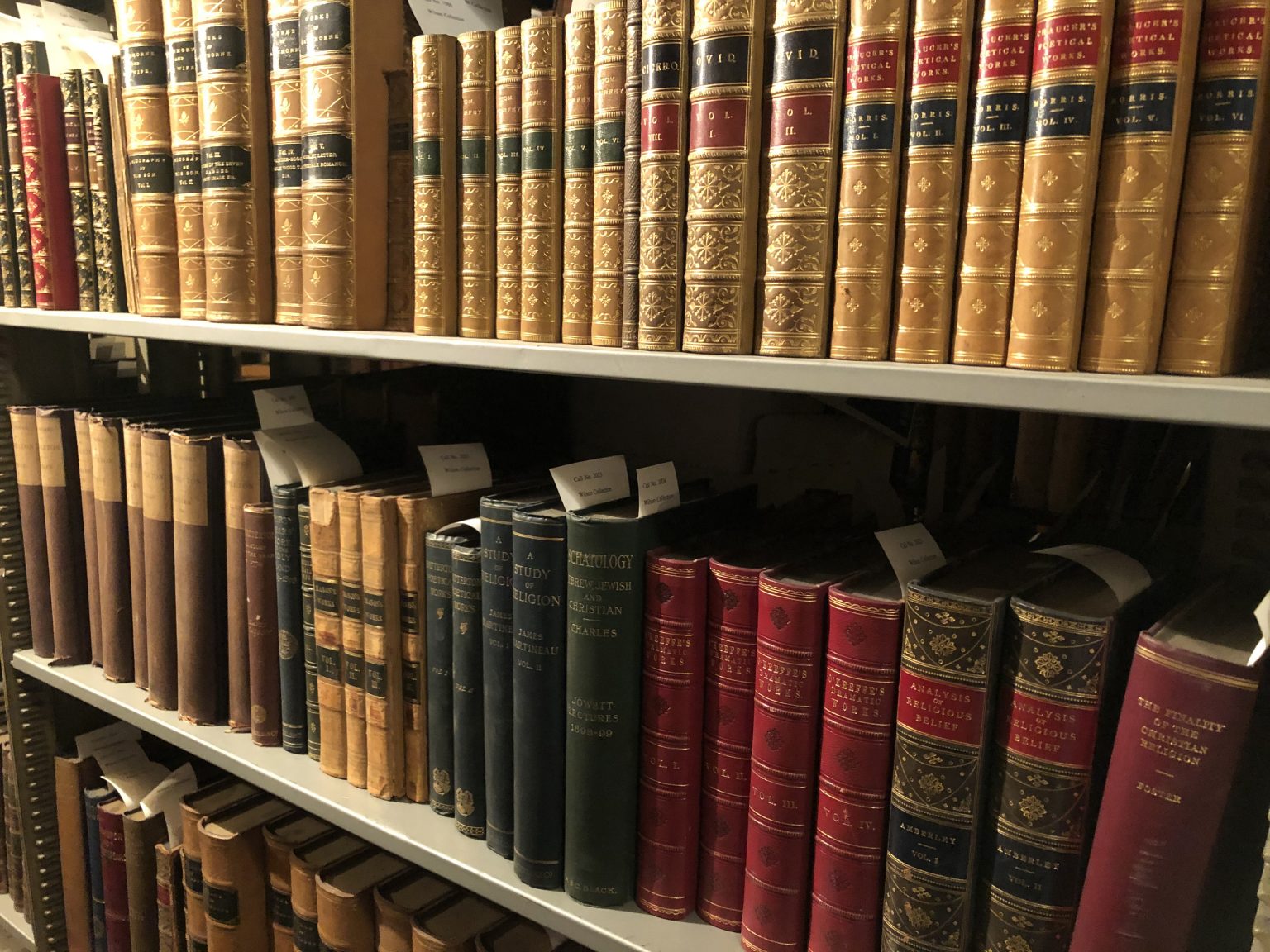
Around the world there are lost libraries everywhere. Not the fabled Library of Alexandria, nor the libraries of North Africa mosques or European palaces or Southeast Asian monasteries that were destroyed by fire, flood, insects, or political pestilence. Rather, the lost libraries are the surviving collections of books that were compiled by readers of decades and centuries ago, existing as physical entities but relegated to faded memory. They’re scattered in houses and public buildings and castles, in basements and attics and in closets and hidden rooms. And sometimes they’re even part of larger libraries. The University of Cincinnati has one such collection, housed in the bowels of Blegen Library on the cast iron book stacks of the Archives and Rare Books Library. UC’s lost library is that of Obediah Jay Wilson, who died in 1914 at the age of 88.
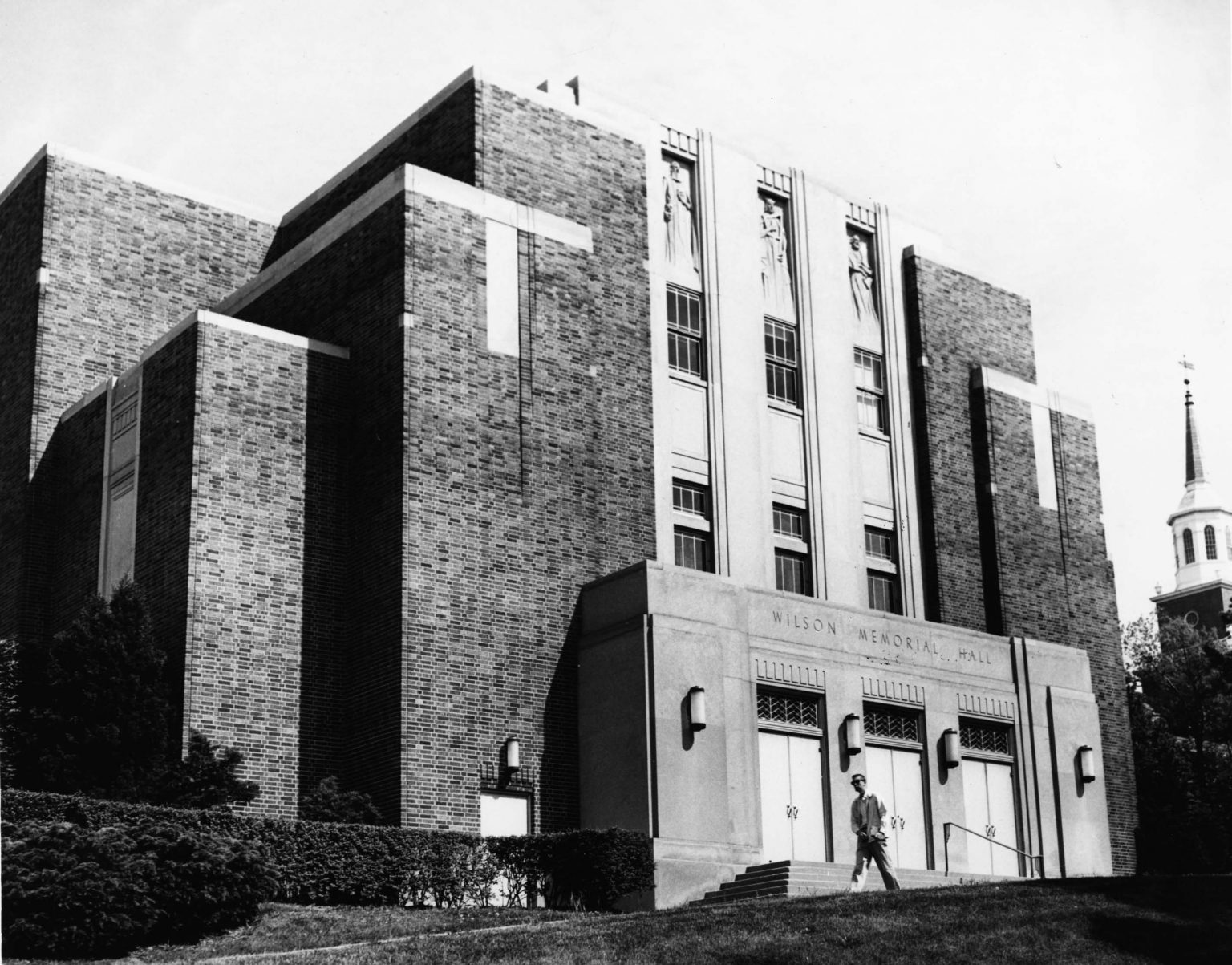
Years after the death of Obediah (more commonly called Obed, and the name has a Biblical meaning akin to “servant” – this is significant for our Obed), his widow, Amanda Landrum Wilson, gave funds to the University of Cincinnati to establish a chair in ethics. She died in 1926 and left a bequest that allowed the construction in 1930 of UC’s Wilson Memorial Hall, better known to eight decades of students, faculty, staff and the community as Wilson Auditorium. The building was demolished in 2013 after being closed up for years because of asbestos contamination and other structural problems. After the past few years of modular classrooms on the site, a new building is rising there that will provide additional classroom and office space for the campus. Wilson Auditorium had somewhat of a 1920s Art Deco feel in its architectural design, and it was faced with stylistic reliefs that featured notable playwrights, composers and orators from history, William Shakespeare, Daniel Webster, William Pitt, Ludwig van Beethoven, Cicero, Demosthenes and many others. When the auditorium was razed, those reliefs were carefully saved and are stored by the University of Cincinnati for future use on campus. In her bequest, Amanda Wilson also made certain that Obed’s personal library would also be a part of the building. A special room was designated for it, and an Art Deco stone sign was carved to indicate it. That sign, too, has been saved.





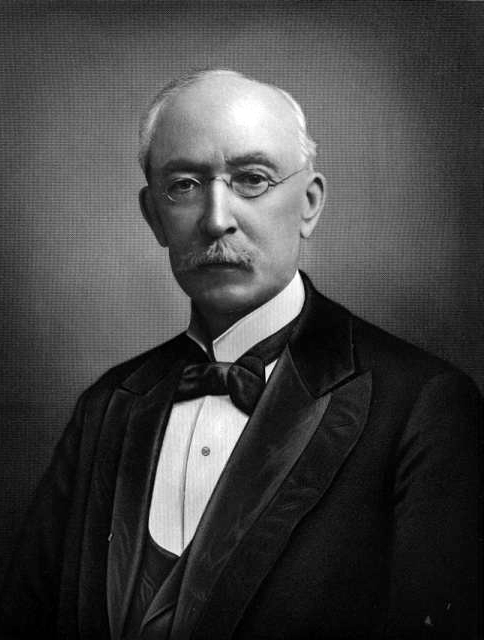
Obed Wilson had a special affinity for books. Born in Maine in 1826, he was the son of a minister and the youngest of 14 children. In 1846 he journeyed to Cincinnati and became a schoolteacher and studied law at night. The intense reading he underwent took a toll on his eyesight and after five years, he was forced to give up teaching and his legal education. Wilson became a traveling book agent, and earning some considerable success, he invested what savings he had accumulated and bought a partnership in a Cincinnati publishing company. And with that, Obed Wilson went on to make a considerable fortune. He and Amanda married in 1852, and after he made his money, they traveled extensively in America and Europe. They also exercised philanthropy in Cincinnati, endowing the arts and the schools. Obed Wilson quite strongly viewed himself as a servant of his community.
But to the matter of his personal library…
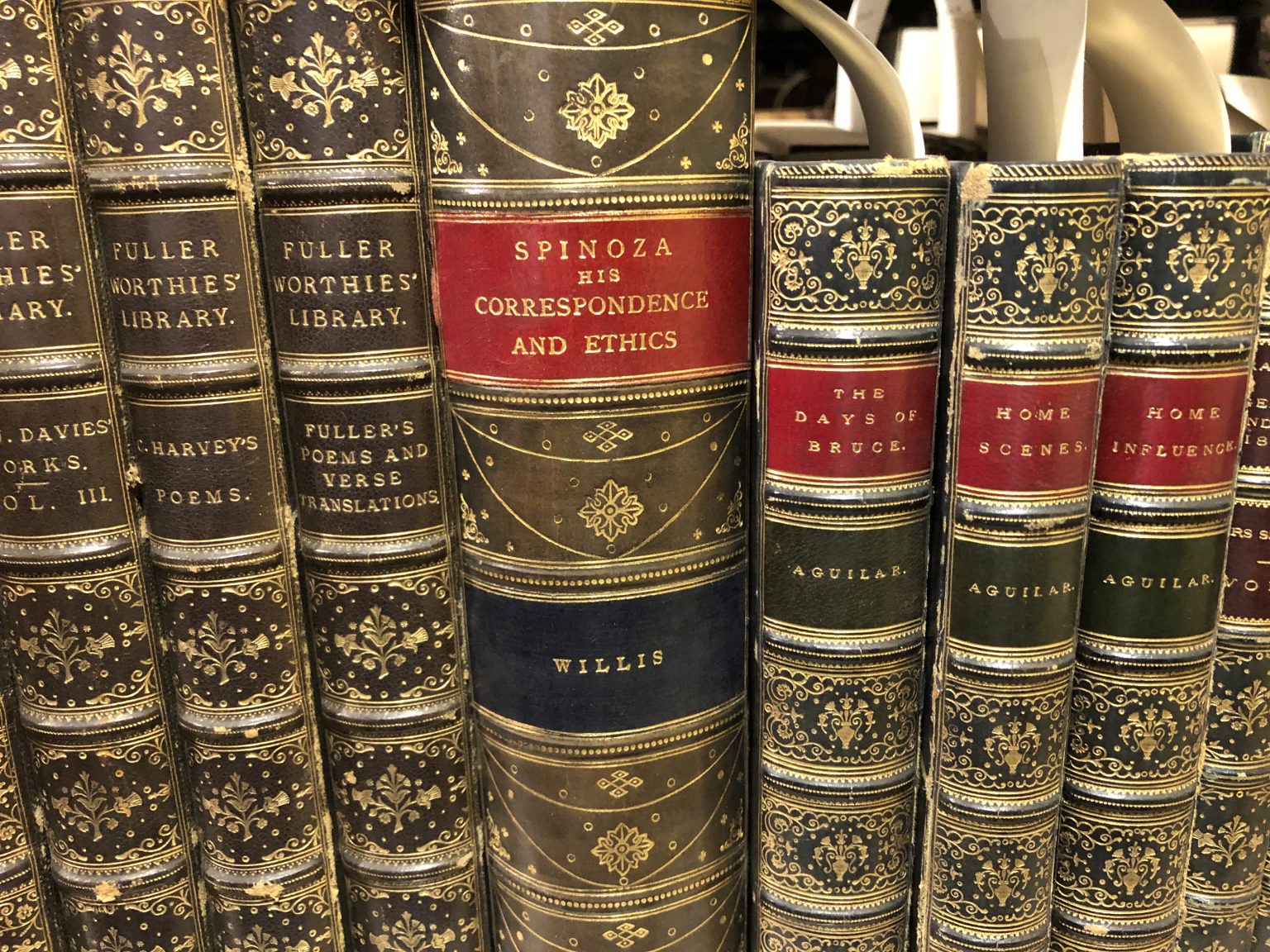
However, and to what extent he recovered his vision sufficient to read again, Obed built a fair collection of books over his lifetime. He tended to focus on history, philosophy, literature, religion and spirituality, and essays. Looked at today with its uniform bindings, marbled end papers and gold leaf, the collection is visually compelling. In truth, the bindings are uniform and lovely, and the marbled end papers are intricate, they are not costly. What they are is a typical gentleman’s library of the Edwardian era, attractive on his home’s shelves and impressive to the eyes and sensibilities of whoever saw or read them. Wilson certainly read them – he was a learned man who well-knew the subjects he collected. In many of the books, he scrawled his signature vertically across the title page in pencil, and in truth there are some books he never got around to reading because the pages are uncut. Like most of us today, they were probably part of his “to be read” pile. Most of our “tbr” piles may be along the bedside or stacked by a chair. Obed Wilson got his on the shelves.
For all of Amanda Wilson’s desires, her husband’s library was rarely used in its auditorium location. The room was isolated and the books held little interest for those that used the building. By the 1960s, additional space in the auditorium was needed and the books were removed by the university and placed in storage. That storage moved about, to a warehouse in Walnut Hills, to a warehouse in Mount Adams, to a building in the medical center, and back to the main campus. At some point in the early 1970s, long before Wilson Auditorium faced disuse, the books were given over to the University Libraries for safekeeping. The person appointed to be the keeper, who also kept watch over other Libraries collection in storage as the stacks supervisor, was John McFadden, the very personification of a curmudgeon. McFadden was an older man slight in build and bald of head, who always dressed in coat and tie and had no qualms about confronting smokers in the stacks or complaining about the Libraries’ seemingly interminable meetings. After McFadden retired in the early 1980s, the Wilson Library was given over to the Archives and Rare Books Library. Since then, this collection of books that only saw significant use during Obed’s lifetime, has been safely stored but never consulted. When Joseph Steger was president of UC from 1984 to 2003, he had some of the books transferred to the presidential home on Lafayette Avenue in Clifton to decorate some shelves in the home. In fact, this was an appropriate use of Obed’s collection, a gentleman’s library put on display.
After Steger’s tenure, the books were returned to Blegen Library. It’s an interesting situation, housing this forgotten library. What sort of “value” can be placed on it? Monetarily, it is of marginal value in that sense. There are approximately 2500 books, with a handwritten list compiled several decades ago. The subject matter is nicely diverse, though the authors are primarily European and American, though Obed Wilson’s affinity for religious studies led him to include several books on Eastern religions and philosophy. Its importance lies in the picture it gives us of a certain life at a certain time. It is a library put together by a man of his era to feed his desire for knowledge and his love for the written word, to serve him so that in some way he may serve in turn. In that sense, Obed Wilson’s library is quite valuable, perhaps forgotten but still there for the learning.

